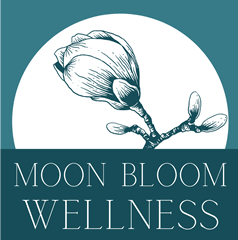When we talk about relationships in therapy, this almost always includes an exploration of personal boundaries. This may or may not be a new concept, but even if you are unfamiliar of the concept of boundaries within a relationship, you are absolutely impacted by them. Because boundaries are such an important consideration in our relationships, it’s important to make yourself aware of the different types of boundaries and how they can impact the way you relate to other people in your life.
There are three different types of boundaries that I will explore in this post: rigid, porous, and healthy. It’s not likely that you maintain exactly the same boundaries in every type of relationship in your life. We are influenced by many factors, including the boundary style of those we are relating to, our previous life experience, and so on.
Learn More About Personal Boundaries by Working with Me Through Online Counseling in New Jersey
Working with me to understand how your personal boundaries may be impacting your relationships can benefit you by improving your connection with others. Reach out to me through Online counseling in New Jersey to find out more! By working together, we can gain insight and develop a plan to improve your relationships.
What is a Personal Boundary?
Before we explore the three categories I mentioned above, let’s talk about what a boundary is. Basically, our boundaries reflect the limits we set for ourselves in relationships. We can learn about our boundaries by reflecting on how opened or closed off to others we are, which we can get clues about through our behavior and interactions with others.
Different Types of Personal Boundaries
Rigid Boundaries– If you have rigid boundaries, you keep a distance from others. You may have a limited number of close relationships and are guarded about what information you share. You might have difficulty reaching out for support. You may have a fear of rejection and avoid intimacy because of this fear. This boundary style can be detrimental depending on the situation because it can prevent you from building connections and experiencing the benefits of having a healthy support system, and it can also leave you feeling isolated or disconnected from others. There are situations where it may be important to have rigid boundaries with someone, for instance, if someone is not respecting your boundaries, you may need to set rigid boundaries in order to protect yourself.
Porous Boundaries– Porous boundaries are boundaries that are too open and can be just as problematic being too closed off. Someone with porous boundaries may also have a fear of rejection, and this shows up for them by making them overly dependent on other people’s approval. They may find themselves making decisions based on what someone else will think, rather than paying attention to what is actually best for them in a situation. If you have porous boundaries, you may also be more vulnerable to abuse because you may be prioritizing someone else’s needs or approval over your own well-being.
Porous boundaries can also be seen in the amount of information someone shares – if someone’s boundaries are porous, they are more like an open book and overshare personal information with others in an inappropriate way. They may also overextend themselves by saying “yes” to requests that they aren’t really able to meet without compromising their own wellness.
Healthy Boundaries– If you can guess from the name of this category, healthy boundaries are what we want to aim for. Someone with healthy boundaries is aware of their own needs and values, and respects these by communicating with others. Information is shared in an appropriate way by factoring in the nature of the relationship and context in which information is being shared. People with healthy boundaries are able to respect other people’s boundaries as well – they can say “no” to others, and accept when others say “no” to them.
Sarah Tronco, LCSW, provides Online Counseling in New Jersey and works to develop a strong therapeutic relationship with her clients, which helps to create a secure place where individuals can achieve meaningful change.
*Photo by Katy Anne on Unsplash

